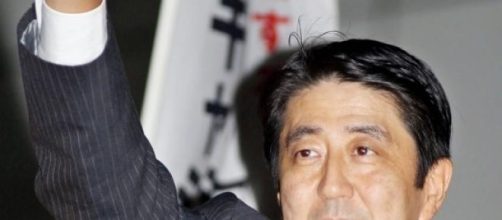Japan's Self-Defence Forces have been sending fighters on a record level to ward off incursions from Chinese and Russian aircraft into its airspace. The number of intercepts by Japan's warplanes has shot up since Russia and China have become more assertive militarily on the world stage, Russia with its take over of Crimea and its support of pro-Russian rebels in Ukraine, and, China with its increased spending on its arms industry.
Prime Minister Shinzo Abe has been resolute since being elected leader of Japan that he wanted to relax the restrictive constitution set up by the Americans after World World 2 which restricted Japan's ability to intervene military and being able to declare war unilaterally without consulting the US.
Japan has been increasing its military spending on advanced hardware, mainly buying from the United States, on helicopters and stealth fighters to meet the threats it perceives coming from North Korea, Russia and China.
Japanese intercepts of enemy intruders has reached a record 943 in the year through March, which according to a Japanese Self-Defence Forces spokesperson has increased 16 % since last year.
If Abe is able to push through his defence changes to Japan's armed forces and constitution then it would arguably enable Japan to send forces abroad and also cooperate with the US more.
With the killing of the two Japanese hostages by Islamic State this year, there was a call by some on the right in Japan to go after their murderers, while some said violence solves nothing.
However, Shinzo Abe, being a right of centre politician himself, saw in those Japanese who craved revenge on Islamic State an opening to push for the strengthening of Japan's armed forces and to make the changes to Japan's laws so Japan in future could go after such organisations as Islamic State.
It seems the Obama administration in Washington has not raised any objections openly to Abe's plans and indeed may encourage a resurgent Japan. The US has stationed troops in Australia, to keep an eye on what is going on in the South China Sea, and, still has forces in Okinawa, in Japan, to counter any threat. To have Japanese forces helping out more would likely be welcome to the US.

